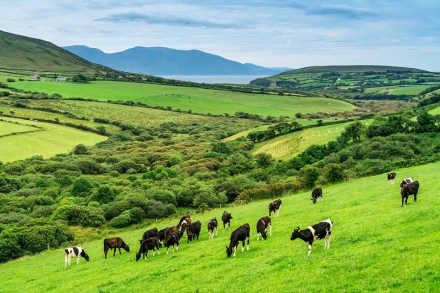I have found heaven in West Cork
A bay mare was standing over a foal curled up sleeping at her feet. Yawning and struggling to keep her eyes open, she was snoozing herself in the sun-drenched paddock of a small white farmhouse. If I had stopped the car to admire the scene every time the scene was this perfect, then I would not have made a mile’s progress on my third house-hunting trip to Ireland. In the country lanes, drivers slowed and waved to me on every bend. A cyclist put his foot on the ground and grinned as though genuinely pleased to see me. Everyone here has time. That’s how it seems anyway. The shop windows





















